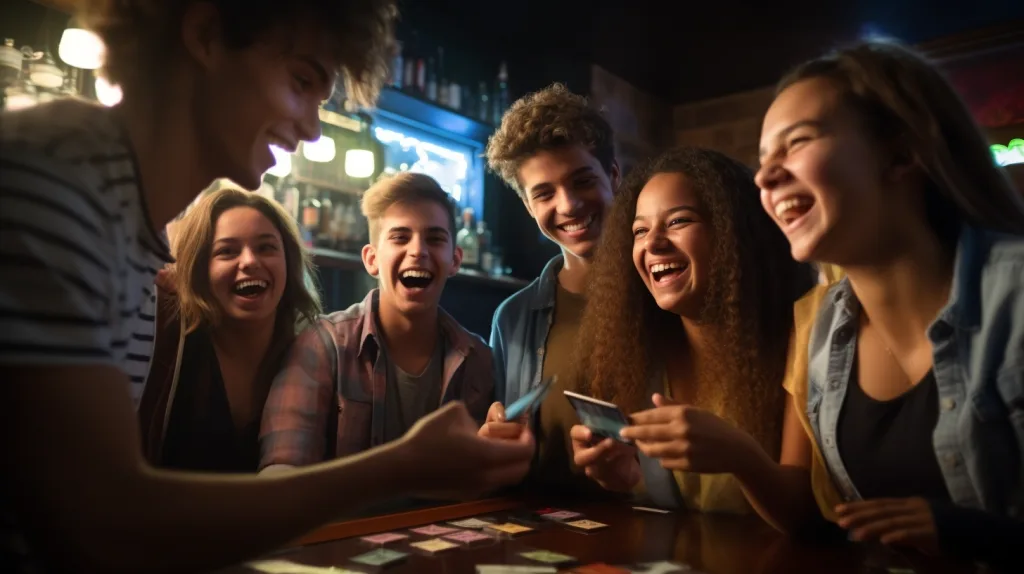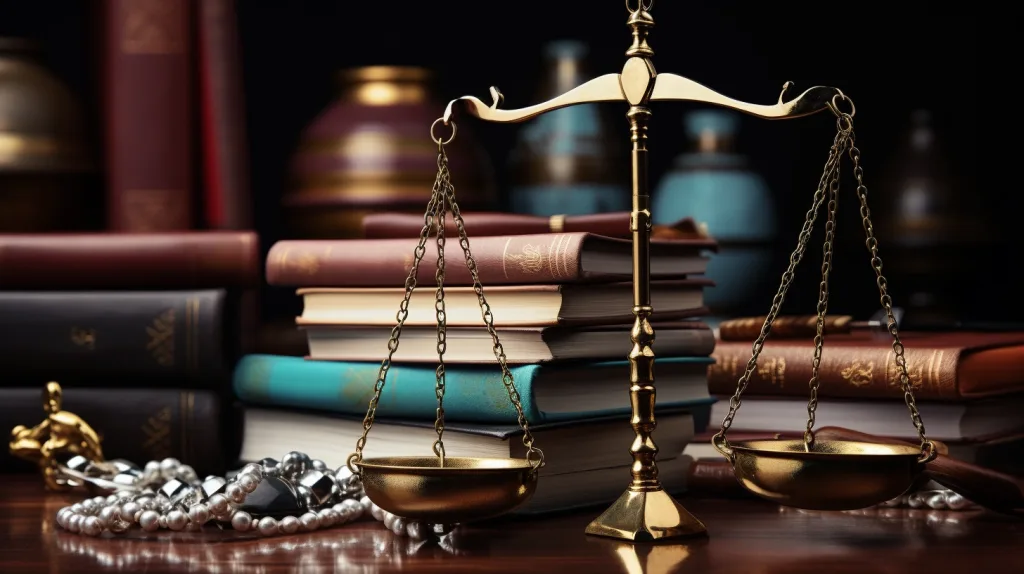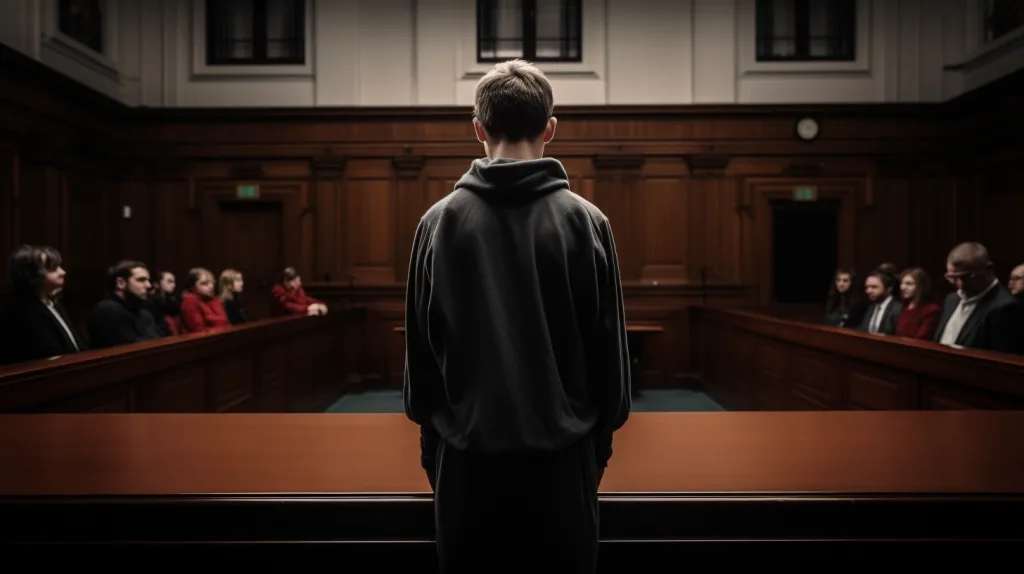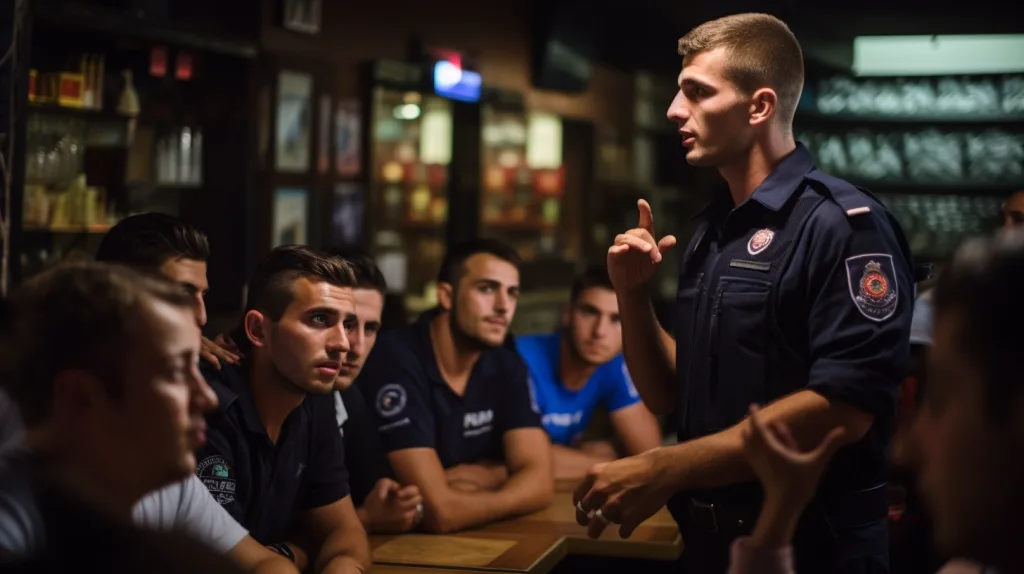What happens if you get caught with a Fake ID at a bar?
Introduction
The question, “What happens if you get caught with a Fake ID at a bar?” often arises among minors attracted to the allure of nightlife and the freedom associated with adulthood. They may explore ways to bypass age restrictions set by bars and alcohol-selling establishments, with one common method being the use of fake identification cards (Fake IDs). A fake ID bears false information, typically portraying the holder as older than they actually are, to grant them access to age-restricted venues and substances. The usage of fake IDs not only poses serious legal consequences for the individuals involved but also has broader implications for society and businesses.
This article aims to delve into the repercussions faced by individuals caught using a fake ID at a bar, the legal framework surrounding fake IDs, and the consequences for the establishments that inadvertently serve minors. By understanding the legal, social, and personal implications surrounding fake ID usage, individuals and businesses can better navigate the risks involved and take informed decisions to uphold the law and ensure safety.
Legal Aspects: What Happens if You Get Caught with a Fake ID at a Bar?
- Overview of Laws and Regulations:
- The legality surrounding the use of fake IDs is governed by both federal and state laws in the United States. The primary federal law concerning fake IDs is the Identity Document Fraud Act of 1998, which makes it a crime to possess, transfer, or use false identification documents with the intent to defraud the United States. On a state level, the laws and penalties can vary significantly, but all states have legislation in place that criminalizes the use and possession of fake identification.
- Penalties and Punishments for Using Fake IDs:
- The consequences of using a fake ID can be severe and long-lasting. Penalties can range from fines, community service, and alcohol education courses to more severe punishments like imprisonment or having a permanent criminal record. The severity of the punishment often depends on the state’s laws, the circumstances surrounding the use of the fake ID, and whether the individual has prior offenses.
- Moreover, individuals caught with fake IDs can also face additional charges, such as forgery or impersonation, which carry their own set of penalties. Establishments caught serving minors may also face fines, license suspensions, or revocations, which can significantly impact their business.
Detection Process
- Identification of Fake IDs by Bars and Restaurants:
- The process of what happens when you get caught with a fake ID at a bar begins with detection. Establishments such as bars and restaurants employ various methods to detect fake IDs. Common techniques include examining the ID for discrepancies in font, color, holograms, and other security features. More sophisticated methods may involve the use of ID verification technology, which can scan IDs and verify their authenticity against a database of legitimate identification templates. The establishment’s staff is usually trained to spot fake IDs, and in some places, bouncers or security personnel are hired specifically for this purpose.
- Role and Responsibility of Bar Staff and Law Enforcement:
- Bar staff have a legal obligation to verify the age of their patrons to ensure they comply with local liquor laws. This includes asking for identification and using their training to determine its authenticity. If a fake ID is suspected or discovered, staff are typically instructed to confiscate the ID and may call the police to handle the situation further.
- Law enforcement officers play a critical role in enforcing underage drinking laws. They may conduct random checks at bars and restaurants, respond to calls from establishments, or investigate incidents involving the use of fake IDs. When called upon, they may issue citations, make arrests, or take other necessary actions as dictated by the local laws and the circumstances of the situation.
The detection process is a collaborative effort between the establishments and law enforcement agencies to ensure the adherence to age-related restrictions and to maintain a safe and lawful environment.
Individual Consequences: The Aftermath of Getting Caught with a Fake ID at a Bar
- Legal Consequences:
- The legal repercussions of being caught with a fake ID can be quite severe. They often start with the arrest or citation of the individual, followed by legal proceedings. The exact process can vary by state, but typically involves a court appearance where the individual may face charges of identity fraud, misrepresentation of age, or other related offenses. Fines are a common penalty, but depending on the jurisdiction and the circumstances, individuals might also face community service, probation, or even imprisonment.
- Social and Personal Consequences:
- Beyond the legal penalties, being caught with a fake ID can have long-term social and personal ramifications. For instance, a criminal record can significantly impact an individual’s future education and employment prospects. Many colleges and employers conduct background checks, and a criminal record can be a red flag that affects admissions or hiring decisions.
- Additionally, the social stigma associated with criminal behavior can lead to strained personal relationships and a damaged reputation within the community. The psychological stress of facing legal proceedings and dealing with the aftermath can also take a toll on an individual’s mental health.
The consequences of using a fake ID extend beyond the immediate legal repercussions, affecting various aspects of an individual’s life. It’s imperative that individuals are aware of the gravity of such actions and the broad spectrum of repercussions they entail.
Establishment Consequences: The Impact of Serving Minors with Fake IDs
- Legal Liability and Potential Fines:
- Bars and restaurants hold a significant degree of responsibility in ensuring that they do not serve alcohol to minors. When an establishment is found to have served a minor, whether knowingly or due to a fake ID, they may face legal liability. Penalties can range from fines to more severe consequences like the suspension or revocation of their liquor license. In some cases, establishments may also be held liable for any harm or damages caused by minors who were served alcohol on their premises.
- Impact on Reputation and Business:
- The reputation of a bar or restaurant can suffer considerably if it becomes known that they have served minors, especially if it happens on multiple occasions. Bad press and negative reviews can deter potential customers and result in a loss of business. Furthermore, the financial burden of fines and legal fees, not to mention the potential loss of a liquor license, can have a devastating impact on an establishment’s bottom line.
- The effort and resources required to rectify such situations, including additional training for staff and the implementation of more robust age verification systems, can also be significant. Establishments need to balance the cost and effort of these preventive measures against the risk and potential consequences of serving minors with fake IDs.
The ramifications of serving minors, even unintentionally, can be far-reaching for bars and restaurants, affecting their legal standing, financial health, and overall reputation in the community.
Preventive Measures: Mitigating the Risk of Fake ID Usage at Bars
- Preventive Measures: Mitigating the Risk of Fake ID Usage at Bars:
- Establishments can implement several measures to prevent the use of fake IDs and ensure they are not serving minors. Investing in advanced ID verification technology, such as scanners that can detect discrepancies in IDs, is one effective measure. Additionally, providing thorough training for staff on how to spot fake IDs and handle situations where a fake ID is suspected can be crucial. Establishing clear policies and procedures for verifying age and handling suspected fake IDs, and ensuring all staff are aware of and adhere to these policies, can also help mitigate risks.
- Educational Campaigns and Resources for Youth Awareness:
- Educating the younger population about the risks and consequences of using fake IDs is another essential preventive measure. Schools, colleges, and community organizations can partner with law enforcement and local businesses to conduct educational campaigns. These campaigns can provide information on the legal, social, and personal ramifications of using fake IDs, aiming to deter individuals from engaging in such behavior. Online resources, workshops, and informational sessions can be utilized to reach a wider audience and provide comprehensive information on the topic.
Prevention is a collective effort that requires the cooperation of establishments, the community, and law enforcement. By implementing robust preventive measures and promoting awareness, it’s possible to reduce the incidence of fake ID usage and its associated consequences.
Conclusion
This article has delved into the scenario of ‘What happens if you get caught with a Fake ID at a bar?’, highlighting the legal, social, and business implications. The legal ramifications span from fines and court proceedings to potential imprisonment, depending on the jurisdiction and circumstances. Individuals face not only legal penalties but also lasting social and personal consequences that can significantly impact their future education and employment prospects. Similarly, bars and restaurants face legal liability, reputational damage, and financial losses, underscoring the importance of robust preventive measures.
The discussion highlights the critical role of awareness and education in curbing the use of fake IDs. Establishments, educational institutions, law enforcement agencies, and the community at large all have a part to play in addressing this issue. By fostering a well-informed populace and adhering to stringent verification procedures, we can collectively work towards minimizing the risks and creating a safer, more responsible social environment.
The imperative of abiding by the law and understanding the severe consequences of using fake IDs cannot be overstated. It is a matter that calls for collective awareness, responsibility, and action to protect not only the individuals involved but also the broader community.
We recommend exploring the more extensive article ‘What happens if you get caught with a Fake ID‘, covering each state in detail.
- Where to Buy a Fake ID - January 19, 2024
- What Happens If You Are Caught Vaping Under 18? - January 12, 2024
- Can You Bring a Vape on a Plane Under 21: A 2024 Detailed Guide - December 29, 2023







